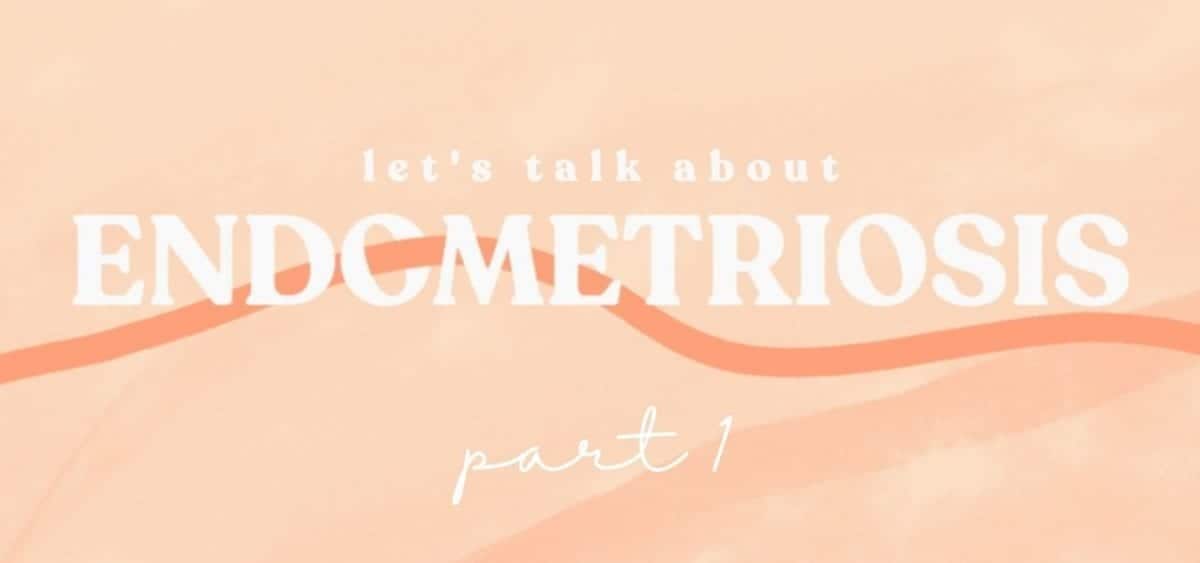Home > Hormones > Hormone issues & symptoms > Endometriosis Series: What is Endometriosis?


When I first heard the term ‘Endometriosis’, I had no idea what it was. Many people are unaware of its existence and may even have it and not know. The symptoms of it are often brushed off as normal experiences, which means that it is difficult to diagnose it.
Do you experience abnormally painful and heavy periods? With distressing symptoms such as nausea and diarrhoea? Then you may be experiencing Endometriosis. Don’t worry, it is not as scary as it sounds!
This series will explain what Endometriosis is and how to deal with it if you have it.
Endometriosis is a condition where tissue from the womb lining starts growing in affected areas such as the ovaries and the fallopian tubes. These tissue cells act in the same way as those in the womb during your period each month. The lining is shed from the organs it is attached to. This process makes the symptoms during your period worse, causing more pain and other discomfort.
It can also affect your fertility, making it difficult to get pregnant. It is thought that the increase in scar tissue on the reproductive organs makes conception less likely. Those with mild Endometriosis have an almost normal chance of pregnancy, however those with moderate to extreme may experiences difficulties. Although it is not entirely understood how it affects fertility, there is a definite association.
Endometriosis can affect women of all ages, often causing painful and chronic symptoms which can have significant impacts on day to day lives.
Endometriosis affects 1 in 10 women in the UK and around 10% of women worldwide. It is the second most common gynaecological condition in the UK.
So you are not alone in your struggle should you be diagnosed with it.
Although despite how common it is, it takes roughly 7 years of symptoms before it is professionally diagnosed.
We don’t know what causes Endometriosis. However several theories have been suggested by researchers.
Some believe that genetics play a part in susceptibility. Others believe that problems with the immune system can cause it.
There is a theory of Retrograde Menstruation. This is where some of the womb lining flows up the Fallopian tubes instead of coming out in a period. The tissues from the womb lining attach to the organs in the pelvis such as the ovaries and this is where Endometriosis manifests itself.
However, none of these explain why Endometriosis happens. The cause is still unknown, but it is generally believed that there are multiple contributing factors.
There are a variety of symptoms of Endometriosis, many of which you may have just brushed off as normal.
The condition can affect your periods:
The condition can also affect your day to day life:
There is often a lot of shame surrounding the female reproductive system. Periods are stigmatised and so is female sexuality in general. Endometriosis is not free from stigmatisation.
It is important to know that Endometriosis is not an infection, nor is it contagious or a cancer. It is a chronic condition which requires attention from medical professionals.
Final Thoughts
Endometriosis can be extremely difficult to live with so getting it diagnosed and treated is important. Hopefully this series will help you understand the condition and the treatments available. Maybe it will even help you understand your own experiences.
The next instalment of this series will be discussing various treatment options.
Sources:

-


Dr Singh is the Medical Director of the Indiana Sleep Center. His research and clinical practice focuses on the myriad of sleep.

Understanding the female libido Before we can answer, “Does progesterone increase sex drive?” it’s important to gain a better understanding of what a “sex drive” means. The female libido or sex drive is how much you desire sexual activity. Every

Why am I so hungry before my period? Women who experience an increased appetite before period starts can feel frustrated that they’re craving foods they don’t normally eat. You may be wondering, “Why do I eat so much before my

Understanding cycle syncing workouts Did you know that evidence shows a link between the impact of exercise and menstrual cycle phases in women? It’s true. Women are at a higher risk of foot and ankle injury during workouts than men,
Hormona© 2025, All Rights Reserved
| Cookie | Duration | Description |
|---|---|---|
| cookielawinfo-checkbox-analytics | 11 months | This cookie is set by GDPR Cookie Consent plugin. The cookie is used to store the user consent for the cookies in the category "Analytics". |
| cookielawinfo-checkbox-functional | 11 months | The cookie is set by GDPR cookie consent to record the user consent for the cookies in the category "Functional". |
| cookielawinfo-checkbox-necessary | 11 months | This cookie is set by GDPR Cookie Consent plugin. The cookies is used to store the user consent for the cookies in the category "Necessary". |
| cookielawinfo-checkbox-others | 11 months | This cookie is set by GDPR Cookie Consent plugin. The cookie is used to store the user consent for the cookies in the category "Other. |
| cookielawinfo-checkbox-performance | 11 months | This cookie is set by GDPR Cookie Consent plugin. The cookie is used to store the user consent for the cookies in the category "Performance". |
| viewed_cookie_policy | 11 months | The cookie is set by the GDPR Cookie Consent plugin and is used to store whether or not user has consented to the use of cookies. It does not store any personal data. |
